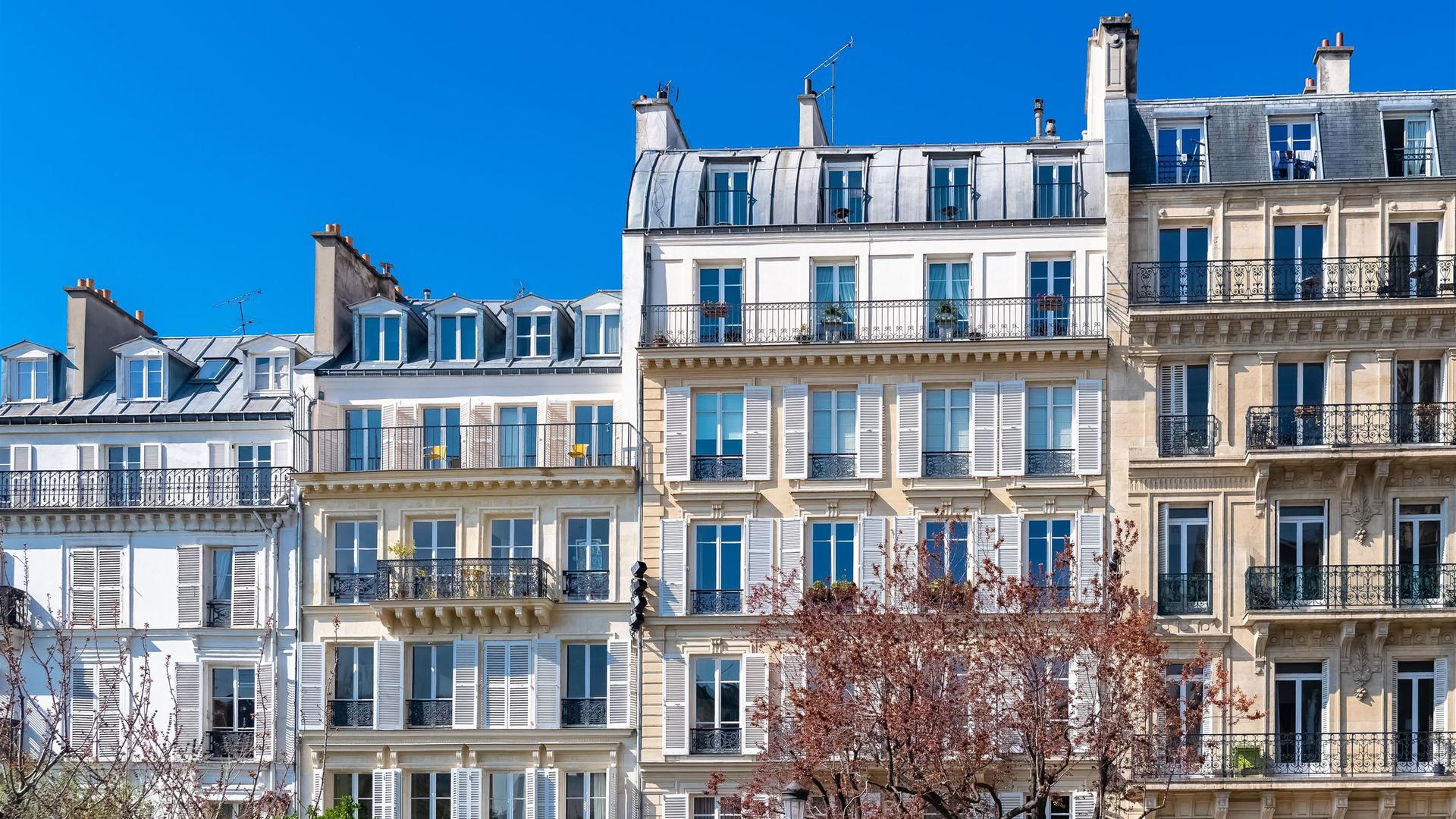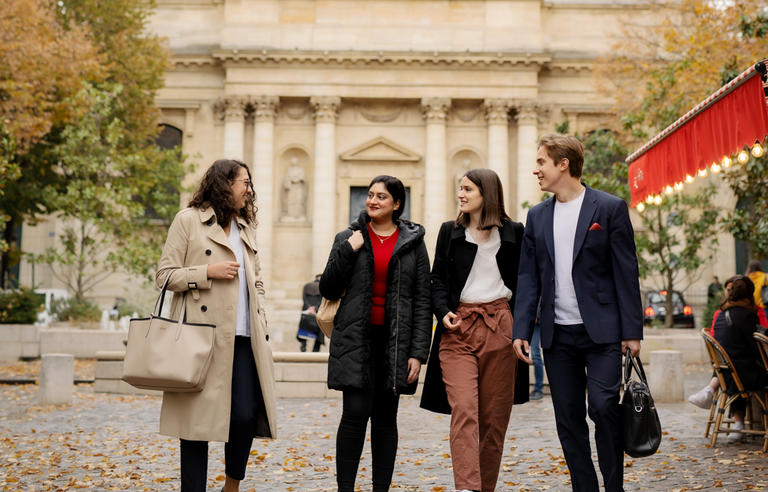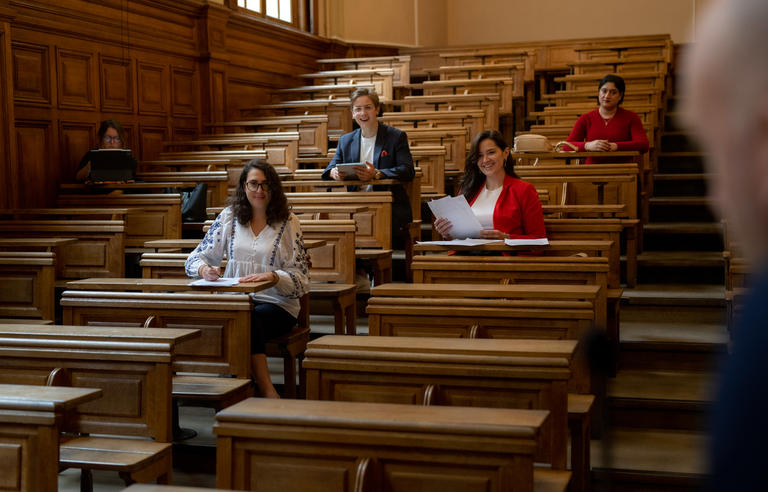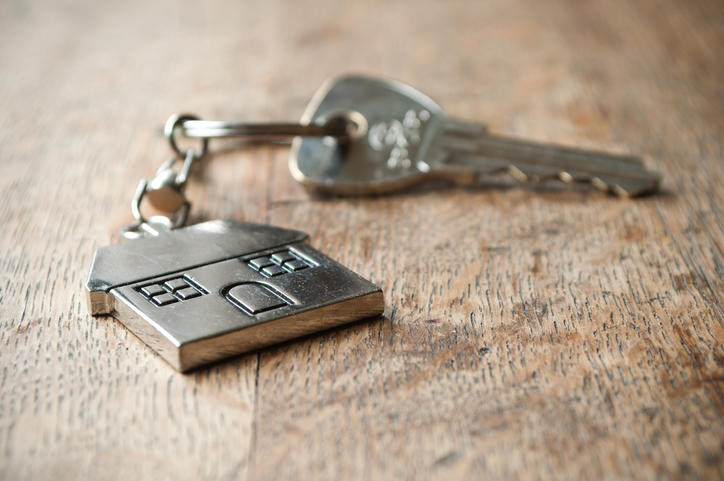For your stay in France, you have many housing options. You can choose between a publicly owned building or a private one, and between a student residence or an apartment that you may occupy alone, with other students, or with a family or local resident. Don’t panic! We’ll decode the various types of housing available to students and help you in your search.
Whatever type of housing you end up choosing, start your search early. Don’t hesitate to reserve a temporary place so you’ll have somewhere to sleep and store your things when you arrive, and give you time to do a thorough search for a permanent place.
Don’t forget to ask the staff at your educational institution if they can help. Some institutions (especially the Grandes Ecoles), maintain a stock of housing or have a system for connecting their students with housing providers.
To facilitate your search, we begin by distinguishing between two basic forms of housing for students in France:
- Student residences and hostels. There are several advantages to accommodation designed specifically for students or young people: lower rents, furnished rooms, and a built-in social life—all valuable commodities.
- Rooms and apartments rented on the real-estate market, either through an agency or directly from an individual property owner. Many who take this route share space with other students or rent a room in a local household.
With the exception of CROUS (in the case of housing for recipients of French government scholarships), Campus France has no partnerships with any entity offering student housing or related services. The entities mentioned in this article are cited solely to assist you in your search.
Table of contents
Know your options
- Student residences and hostels
- University residence halls managed by CROUS
- The international student residence of Paris
- Student residences owned and managed by private companies
- Hostels for students and youth
- Housing in the private real-estate market
- Private apartments and shared rentals
- Living with a family or an elderly resident
Beginning your search
- How to read real-estate ads
- Gathering your documentation
- Finding a guarantor
Moving in
- Signing the lease or rental agreement
- Agreeing on the condition of the premises
- Property insurance
- Utilities (gas and electric)
- Financial assistance from the CAF

Student residences and hostels
University residence halls managed by CROUS
The residences managed by France’s regional centers for student services, known as CROUS (centres régionaux des œuvres universitaires et scolaires), are publicly owned and subsidised by the French government. CROUS buildings are the first choice of many students thanks to the advantages they offer: the monthly rent is low (€400 in Paris; €200 on average elsewhere in France) and occupants qualify for housing assistance from CAF (France’s family assistance fund); the buildings are close to campus; and the opportunities for social interaction with other students are plentiful. In fact, the only drawback to CROUS rooms is that they are hard to get, because demand far exceeds supply.
Obtaining a room in a CROUS residence hall
1. Start by asking the international office at your French institution if they have an agreement with CROUS.
2. Identify the CROUS that is responsible for the area where you’ll be studying. Each CROUS is separately managed and has its own website.
3. Click on the “housing” or “international” tab of your CROUS’s site to discover the procedure for obtaining a room in a university residence. Check the dead line for the submission of your “international housing” application.
4. Lokaviz lists all of the units available in CROUS residences, as well as space offered by individual property owners. There’s no cost to review the posted vacancies. All of the units listed on the site have earned the Lokaviz label, so students can be sure they’re renting decent housing.
The international student residence of Paris
Located in the 14e arrondissement of Paris, the Cité internationale universitaire de Paris (CIUP) is a sprawling collection of university residences that house nearly 6000 students, scholars, scientists, artists, and athletes from all over the world. Rent varies depending on the amenities provided, the occupant’s age, and the duration of their stay.
To live at CIUP, one must be enrolled at an institution in the Paris region and working on a master’s degree or above. Learn more at the CIUP website under the tab Apply for housing (Faire une demande de logement).
Student residences owned and managed by private companies
Privately owned and operated student buildings are a good alternative if you’re not able to get a room through CROUS. The rents are often higher than in CROUS buildings, but they’re competitive with other forms of student housing. The everyday advantages are many: group life, furnished rooms, internet, gym, laundry facilities, etc.
To gain an idea of the space offered in private student residences, check out the websites of the following companies: PARME, Suitétudes, Les Estudines, NEXITY Studéa, Fac-Habitat, Cardinal Campus, Néoresid, Kley, Student Factory.
Hostels for students and youth
Run by nonprofits (often religious organisations), most hostels offer accommodation for young people between the ages of 18 and 25. Some are single-sex; others are mixed. Priority is usually given to young workers (engaged in apprenticeships, work-study, or practical training) or to students performing internships, but you can apply as a student. Rooms are less expensive than in private student residences. Expect to pay about €500 in Paris; €250 elsewhere. Some hostels offer meal plans.
To learn more, visit the sites of the national union of student houses, the association of youth residences and hostels, and the national union for youth housing.
Housing in the private real-estate market
You may also decide to turn to a real-estate agency or individual property owner. You can rent an apartment for yourself alone or find a room in an apartment or share-house (collocation).
Private apartments and shared rentals
Many students choose to rent an apartment. Those who want to live alone generally opt for a studio. Expect to pay at least €800 in Paris and €400 elsewhere in France.
To find notices of apartments offered by real-estate agencies, check Se Loger or, for Paris specifically, Lodgis. To rent an apartment from an individual property owner (without going through an agency), check the listings on the sites PAP or Le Bon Coin.
Many students elect to rent large apartments and share them with others, a practice known as colocation. In shared rentals, the tenants split the rent as well as the costs of electricity, gas, and internet/telephone service.
Shared rental opportunities are advertised on several sites: appartager, roomlala, immojeune, and la carte des colocs.
Living with a family or an elderly resident
International students wishing to refine their French often choose to live with a French family. It’s a practical and economical solution: You get your own room in a house or apartment while taking part in French daily life and enjoying the comforts and facilities of a permanent home. Some families even offer students free or reduced rent in return for services such as childcare, help with homework, or language lessons.
Learn more from CoHomly, or, for Paris only, France Stay.
You may also want to consider intergenerational housing. Nonprofits match students looking for housing with seniors willing to offer a room in their home in return for the student’s reassuring presence, typically during the evening hours and overnight. Rents are modest and sometimes free.
To learn more, visit the site of the nonprofit Ensemble 2 générations and of the network réseau CoSI, where CoSI stands for intergenerational cohabitation for mutual benefit.

How to read real-estate ads
The number of rooms mentioned in advertisements refers to the amount of “living space” (e.g., bedroom, living room, dining room); it does not include the kitchen, bathroom, or hallways. For example, deux pièces means that the unit has a bedroom and a living room, as well as a kitchen and bathroom.
Here are some of the most common phrases and abbreviations:
- Studio: a single room with a kitchenette
- T2 or F2: a deux pièces, i.e., a bedroom and a living room, as well as a kitchen and bathroom
- T3 or F3: trois pièces—a three-room apartment (usually indicating two bedrooms)
- SdB: bathroom with tub
- Salle d’eau: bathroom with shower
- Appt.: apartment
- RdC: ground floor, street level
- Asc.: elevator
- TBE: very good condition
- CC: charges included. "Charges" cover the costs of maintaining the building (exterior, grounds, common areas) and providing common services (e.g., collecting trash).
Gathering your documentation
The list of documents you’ll need will depend on the type of housing you’ve chosen and the owner’s requirements, but, generally, you should be prepared to provide copies of the following:
- Your ID card,
- Your residency permit (e.g., VLS-TS) if you are in France on a nonresident visa,
- Your student card and proof of enrollment for the current year,
- A letter from your guarantor and proof of the guarantor’s identity.
Finding a guarantor
A guarantor is someone who provides security on your behalf, that is, someone who agrees to pay your rent in the event you can no longer do so. In France, nearly everyone seeking to rent an apartment, whether French or foreign, is asked to name a guarantor.
Your guarantor must be French. If you don’t have one, other solutions are possible, thanks to the VISALE system, which provides rental guarantees if you are renting an apartment or room in a university residence. It is best to begin the VISALE process as soon as possible, even before arriving in France. You don’t have to know your address in France to obtain a certificate of eligibility for VISALE (known as a “VISALE visa”).
Garant Me is an alternative for those who are not eligible for VISALE or in the case your landlords does not accept it.
A few tips
- Don’t wait until you arrive in France to look for housing. Submit your applications remotely, whether for a room in a CROUS building, a hostel, or a private home.
- Beware of rents that seem too good to be true.
- Look for furnished rentals. You’ll save on move-in expenses.
- Never send money remotely until you’ve set foot on the property, had direct exchanges with a property owner or agent and signed a rental agreement. It is therefore popular for students to arrive a few weeks early and stay in a hostel or airbnb until you find permanent accommodation.

Signing the lease or rental agreement
Life in your new accommodation begins when you and the property owner sign a lease or rental agreement - a bail or contrat de location - setting forth the conditions under which you have the right to occupy the unit. The following are among the provisions in the rental agreement:
- The amount of the rent and charges (if charges are assessed).
- The amount of the security deposit (caution). The security deposit is a sum that your landlord may require you to advance to cover any damage to the property that may occur during your tenancy. The amount is generally equal to a month’s rent (by law, it cannot be higher). The security deposit will be refunded to you if you leave the unit in the same condition in which you found it when you moved in.
- The notice period. If you decide to leave your lodging, you must give your landlord advance notice - generally, a month in advance. For example, if you plan to leave on July 1, you must give notice no later than June 1, and you must do it by registered mail with confirmation of receipt.
You should be prepared to pay the first month’s rent and security deposit upon signing the rental agreement.
If you need a French guarantor to sign the lease, VISALE is a no-cost solution to the problem of student security deposits. With VISALE, students find housing more quickly and property owners are assured that rent will be paid. All the information about VISALE is found here.
Agreeing on the condition of the premises
Now that you’ve signed your rental agreement, just one step remains before you get your keys. You and your landlord must inspect the premises. This very important step ensures that you and your landlord are in agreement about the condition of your unit at the time you take possession of it.
Together you will inspect every room and record your observations in a document entitled “État des lieux” (condition of the premises), which you both will sign. The same process will be repeated when you leave the apartment to discover whether any damage occurred during your tenancy.
Property insurance
You are strongly advised to take out property insurance (assurance habitation) on your unit. This will protect you against unexpected events (such as water damage or burglary). You can obtain property insurance from a bank or insurance agency. The cost will be proportional to the size of your unit. Some insurance companies offer both health insurance and housing insurance.
Utilities (gas and electricity)
If you rent an apartment on the private real-estate market, you will be reponsible for opening an account with providers of electricity and gas. Many energy providers operate in France. Some are traditional utilities (EDF, ENGIE); others have emerged more recently with the opening of the market to competition (Direct Energie, Total Spring, Eni, and Planète Oui, among others). It's best to compare their offers to get the best deal.
If you rent a room in a university residence, the cost of electricity and gas will probably be included in your rent. In this case, you will not be required to contact providers to connect a service.
Financial assistance from the CAF
Here’s some good news! International students in France are eligible for the same housing assistance as French students.
You may qualify for a rent subsidy. If you do, the CAF (Caisse des Allocations Familiales - France’s family assistance fund) will pay you a subsidy under one of three types of assistance that can reduce the rent you pay:
- Allocation de Logement Sociale (ALS - the social housing assistance)
- Aide Personnalisée au Logement (APL - the personal accommodation assistance)
- Allocation de Logement Familial (ALF - the family accommodation assistance)
To find out if you qualify for any of this assistance, do a simulation on the CAF website.






















